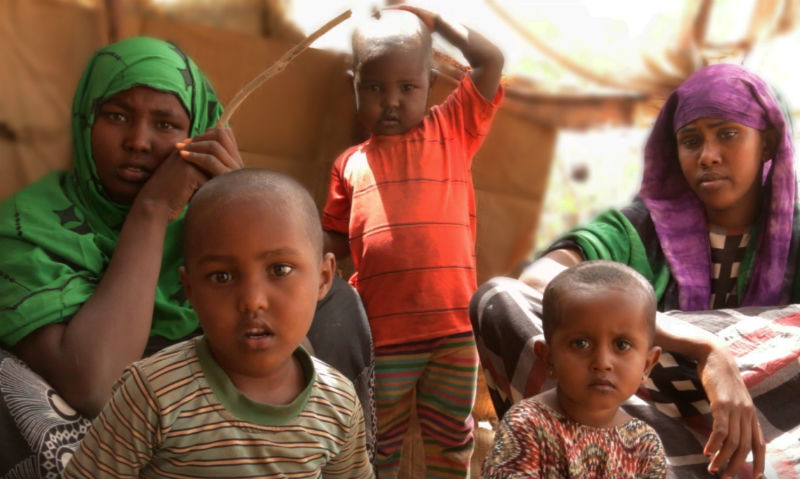
by Fadumo Ali
Last year I traveled to Somaliland, a small country in East Africa. While I was there, I met a woman named Zaniab who was suffering from a painful condition following the birth of her son, Hassan.
She couldn’t get the care she needed at home. So she had to travel to a special hospital far from home where the doctors were able to help her.
Zaniab was lucky. Many women aren’t.
I was in Somaliland to produce a documentary on maternal care in the country. I visited the remote regions on the outskirts of Erigavo, in the Northeast Province, Buraco, and areas around the capital, Hargeisa.
The documentary was inspired by a book called Half the Sky, which features the works of Edna Adan, an inspiring figure and advocate for women’s health. Adan was the first Somali woman to be certified as a nurse-midwife in the United Kingdom. She spent decades training midwives throughout Africa and the Eastern Mediterranean as a representative of the World Health Organization (WHO). After retiring from WHO, Adan returned to Somaliland to realize her dream of opening a hospital to improve health care conditions for the women and children of her country.
Inspired by her work and story, I began educating myself on health-related issues women in developing countries endure. One of the major reproductive health challenges facing women in East Africa is obstetric fistula. A fistula is a hole that can develop between the vagina and the bladder or the rectum during a very difficult childbirth. Some close on their own, but many need surgery.
In developed countries, obstetric fistula is almost nonexistent.
The bulk of my documentary centers on women across Somaliland and their journey to treatment at the National Borama Fistula Hospital. This hospital in Somaliland is dedicated to fistula treatment. They have two full-time fistula surgeons who perform over 400 surgeries annually. The hospital also administers skills training for fistula patients, awareness campaigns through local midwives, radio, and TV, financial support for women post-recovery and training for community health workers to best identify and refer fistula patients for treatment. This has led to increased awareness of obstetric fistula in Somaliland.
However, a lot more needs to be done to reverse the increasing trend of this condition.
When I returned home to Seattle after my trip to Somaliland, I was so inspired that I sought nonprofits that shared my values. Thankfully, I found Save the Children Action Network. I became the first SCAN Student Ambassador at my university, starting a club and engaging other students on these issues.
I share the same vision as SCAN: a world in which every child survives, learns and is safe. And, that’s why our effort to stop massive funding cuts to health and nutrition programs is so critical. American leadership is vital to stopping the scourge of children dying from things like pneumonia, diarrhea and malnutrition.
Through SCAN I have had the opportunity be a voice for the most vulnerable population of our community. I used my voice during SCAN and Save the Children’s Advocacy Summit last week, where I spoke to lawmakers in D.C. on the importance of early education, and maternal, newborn and childhood survival. I spoke with representatives and senators from my state on ways they could support the well-being of children.
The social, health, and economic development of children are critical issues that members of both political parties must take seriously. Our society will suffer a major setback if children are not put first.